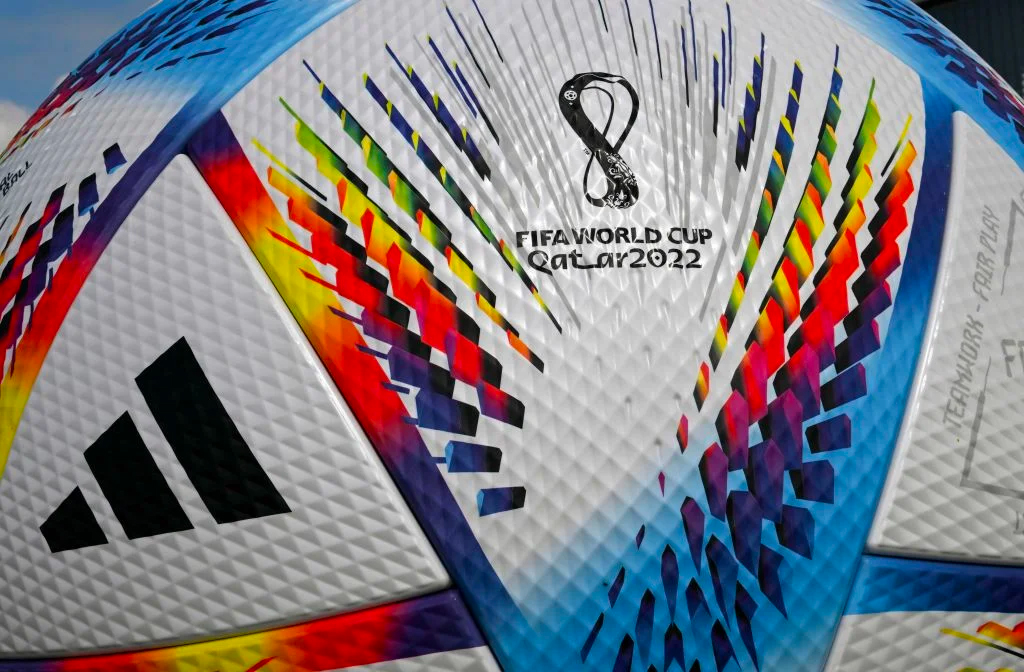The FIFA World Cup is the world’s biggest sporting event and a lucrative opportunity for brand sponsors to showcase their company to the world. With the 2022 Qatar World Cup set to kick off on 20th November, we’re looking at the key sponsors – from established partners to newcomers making their debut at the tournament. Comprised of a combination of established corporate brands and emerging, high-growth globalising businesses, here are seven key FIFA World Cup sponsors to look out for when the tournament gets underway.
For more information on football sponsorship and how it could help your brand, email the team at [email protected].
Established World Cup Sponsors
Adidas – £560m annual football spend*
Adidas is the longest-serving sponsor of FIFA, having provided the official match ball for the tournament since 1970 (see below). The global sportswear behemoth activate huge advertising promotions around the tournament, including famous TV ad campaigns, including 2006’s ‘Jose + 10’, featuring an all-star cast. The brand use their association with the World Cup to grow their CSR efforts, contributing products for numerous development causes to further FIFA’s ‘develop the game, touch the world, build a better future’ ethos. In order to stave off competition from rivals, Adidas’ long-term collaboration comes at a steep cost, with their 2015 renewal (until 2030), costing a reported $800m.
Adidas’ partnership with FIFA is just one of a wider, premium football sponsorship portfolio. The brand are also Real Madrid shirt sponsor, Manchester United shirt sponsor, Arsenal shirt sponsor and a UEFA global partner.
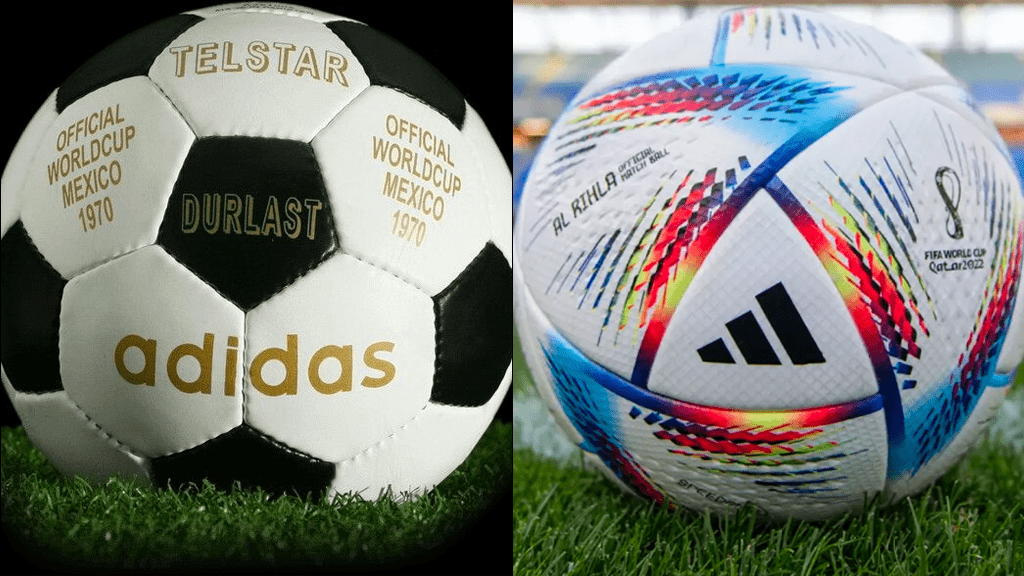
Qatar Airways – £161 annual football spend*
Over the past five years, Qatar Airways have grown their global presence via a sports sponsorship strategy including premier football IP as PSG shirt sponsor, Bayern Munich shirt sponsor and a UEFA global partner. The national airline of Qatar also became an official partner of FIFA in 2017 in preparation for the 2022 tournament.
As the first World Cup to be held in the Middle East, the airline is looking to maximise impact by becoming a key link in the transport ecosystem responsible for transporting 1.5m+ fans to the country. With hundreds of thousands of fans travelling to Qatar from countries not traditionally served by the carrier, the airline have reworked their travel network to cater to the diversified demand from travellers, withdrawing from 18 destinations while scheduling extra services from Europe and Latin America. Qatar Airways long-term intentions for their partnership with FIFA remain cloudy, however Craig Thomas, the airline’s VP of Sales in the Americas, has committed to participation in the 2026 tournament.
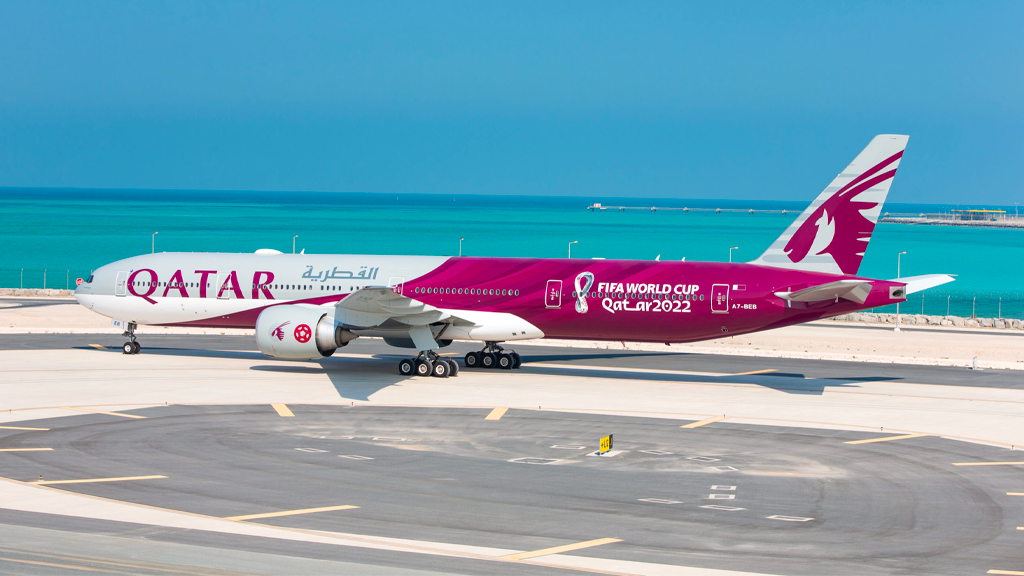
Wanda Group – £43m annual football spend*
Chinese companies are providing more sponsorship in comparison to any other country at the 2022 World Cup, according to research by GlobalData. Of these, the biggest investor is Wanda Group, China’s largest commercial property company and one of FIFA’s seven official sponsors. Wanda Group primarily use their World Cup sponsorship to drive awareness and increase positive brand sentiment around the world, with the “FIFA Flag Bearers’ programme a key function of this approach. Wanda Group’s participation in the tournament comes at a steep cost, with the company investing a reported $850m in the partnership set to run until 2030.
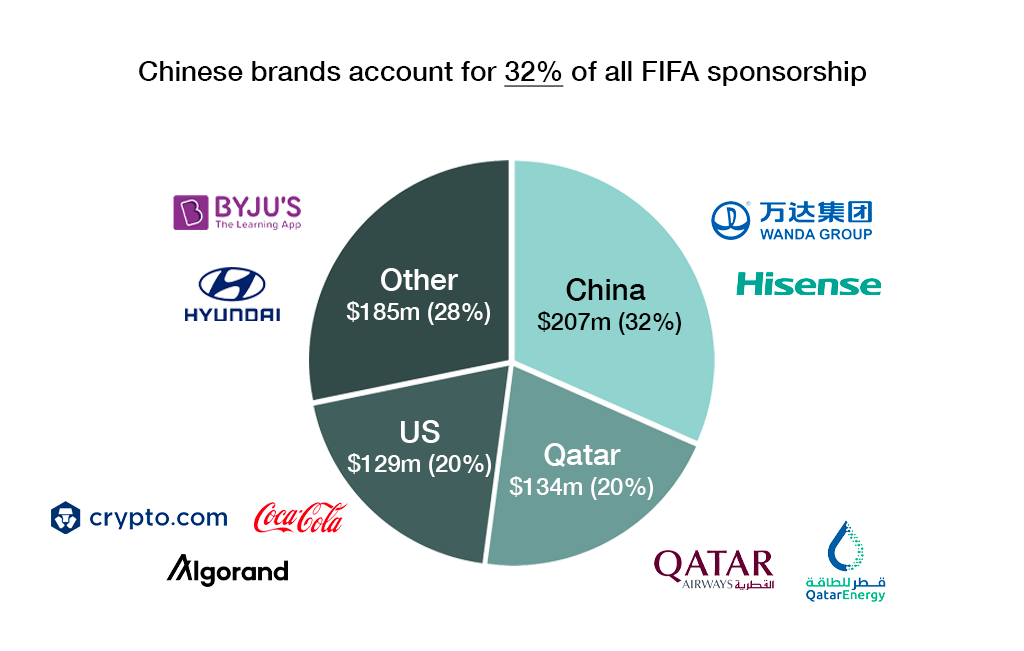
EA – £125m annual football spend*
The 2022 World Cup marks the last tournament that FIFA will collaborate on with EA, as their 30-year association, and iconic eponymously titled video game series, comes to an end. The high-profile split has been well publicised, with EA set to launch their own video game franchise, EA Sports FC. FIFA has also announced plans to release their own video game, with the former collaborators set to go head-to-head to dominate the football video game market. As a parting gift, EA have included a World Cup-themed interface into FIFA 23, with special game modes, as well as the replica kits and squads of the 32 teams competing in Qatar.
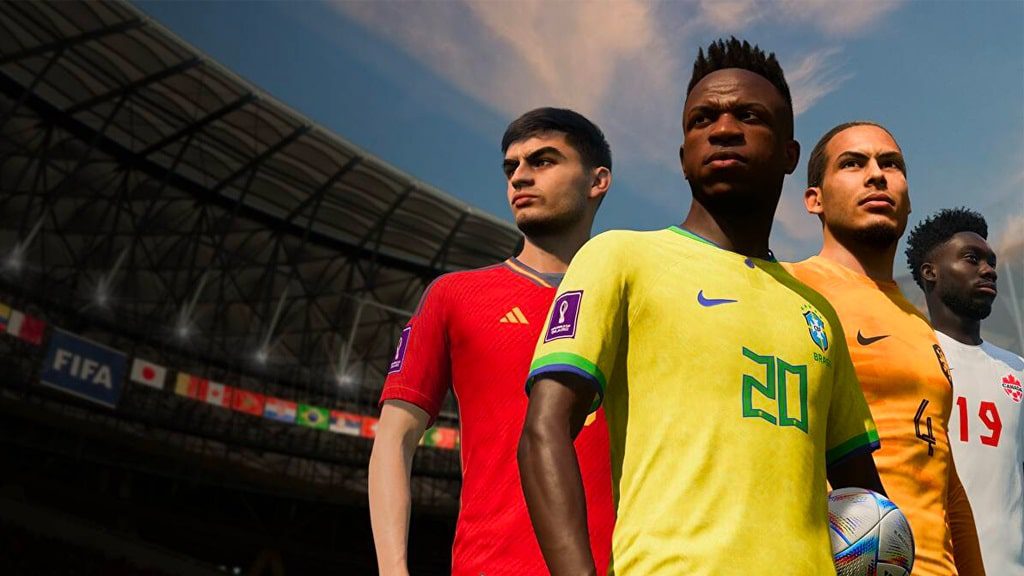
EMERGING WORLD CUP SPONSORS
Crypto.com – £70m annual football spend*
In the past 2 years, crypto brands have invested over $600m annually in sports sponsorship, led by sector leaders Crypto.com and FTX. Since launch in 2016, Crypto.com have committed over $1bn to sports sponsorship, including LA Lakers stadium naming rights (the Crypto.com Arena), F1 global partner, UFC global partner and PSG global partner, enabling the brand to reach a wide global audience and continue to grow rapidly, despite an industry-wide downturn earlier this year. The results of this global marketing drive are clear, with the brand surpassing 70m users in November 2022. Crypto.com’s partnership with FIFA marks the biggest move by any crypto brand in football to date and, as the only crypto exchange officially associated with the tournament, will provide the brand with a unique edge as the eyes of the world become fixed on the tournament come 20th November.
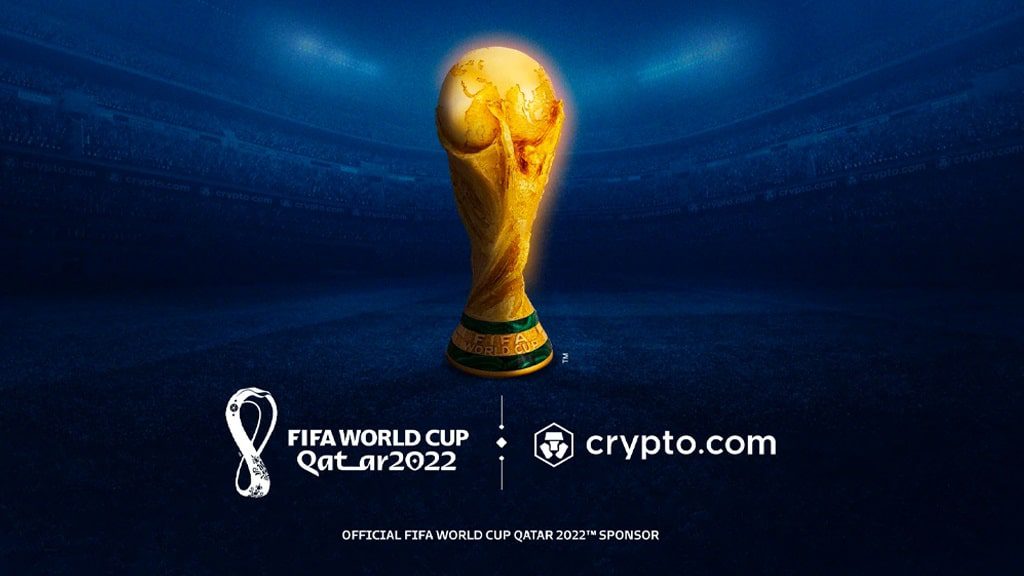
Algorand – £17m annual football spend*
Joining Crypto.com is another brand from the crypto and blockchain space, Algorand. The brand are the first US-based company to partner with FIFA since Johnson & Johnson in 2011. As the Official Blockchain Partner, Algorand will be a regional sponsor of the 2022 World Cup in North America & Europe, helping to develop the football governing body’s digital asset strategy and providing the official blockchain-supported wallet solution. For other high-profile football sponsorship strategies by blockchain brands, see Tezos’ Premier League sponsorship strategy with Manchester United.
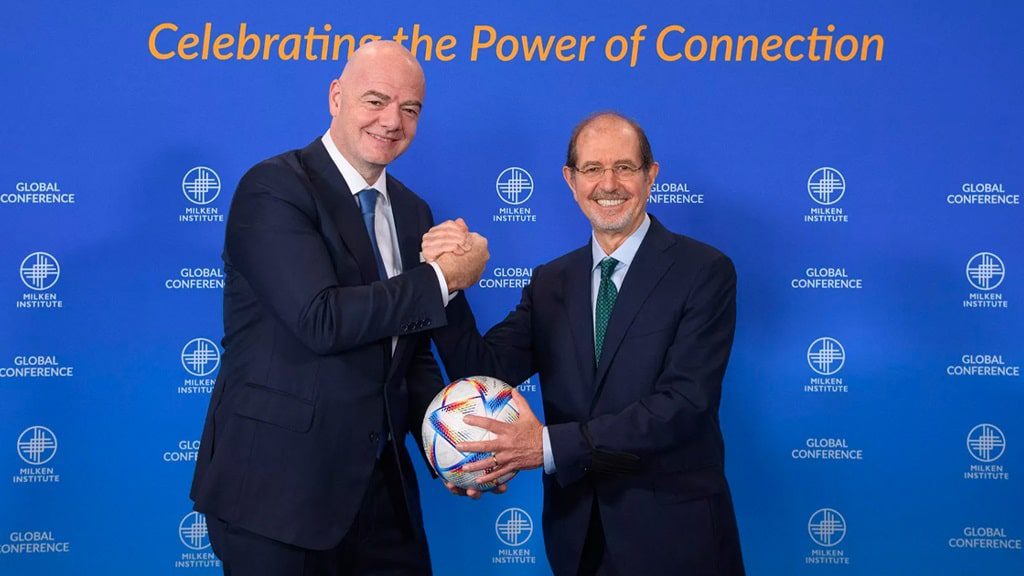
BYJU’s – £30m annual football spend*
Indian edtech platform BYJU’s have grown quickly since launch in 2011, with 150m users across 120 countries. The brand entered sports sponsorship as the shirt sponsor of the Indian cricket team in 2019, with their FIFA World Cup sponsorship marking their first foray into football sponsorship. The collaboration offers BYJU’s a global marketing platform to drive exposure and growth worldwide. It’s equally beneficial to FIFA, with BYJU’s ethos closely aligned with the governing body’s goal to enact positive social change around the world. Since launching the partnership, BYJU’s have added to their world-leading sports sponsorship portfolio by signing Lionel Messi as their first ever global brand ambassador.
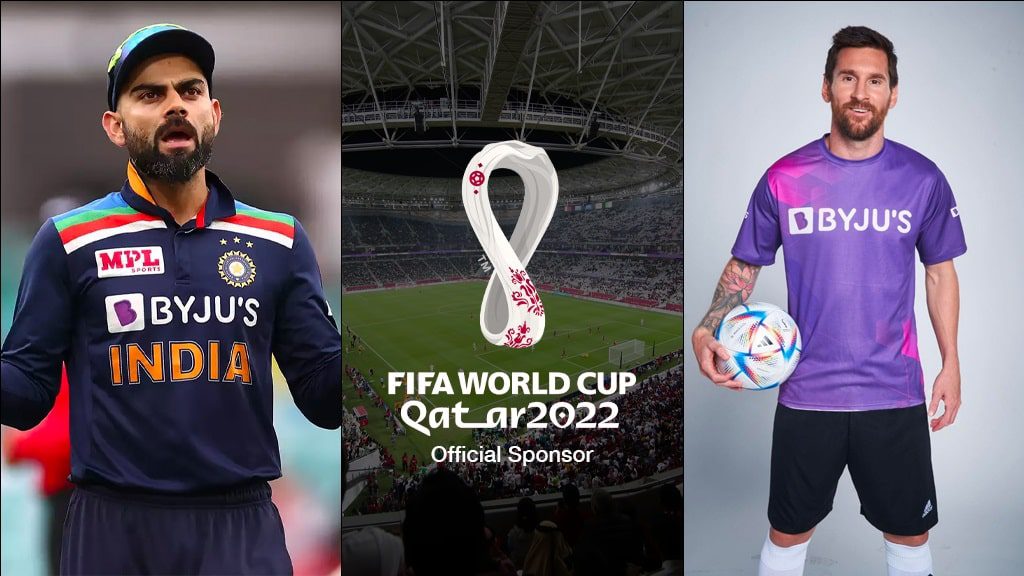
SportQuake are the football sponsorship specialists. For more information on football sponsorship and how it could help your brand, email [email protected]
*Football spend figures = approximate values based on SportQuake global football ecosystem analysis, November 2022

